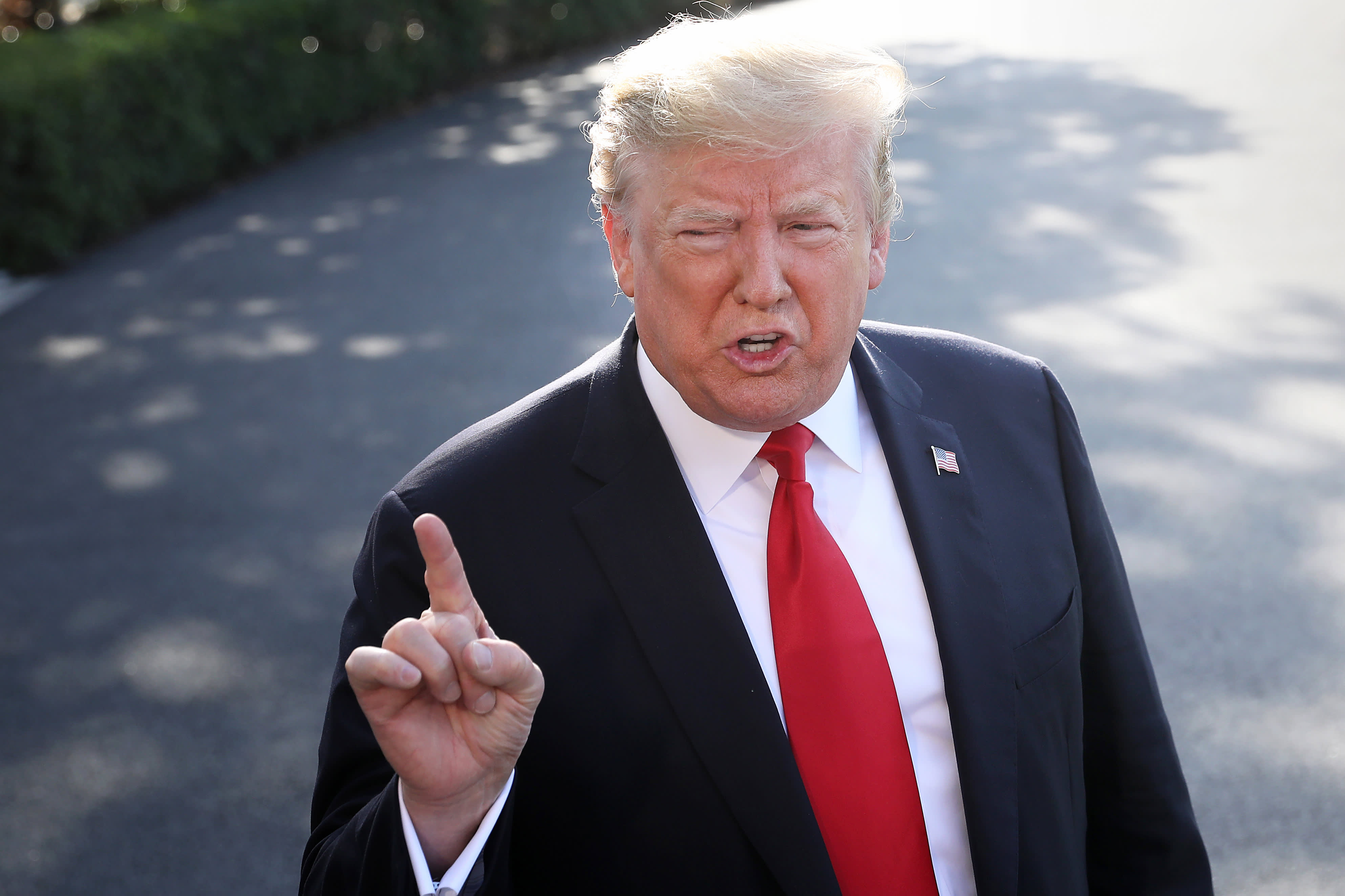The fate of the updated trade deal between the U.S., Mexico and Canada was thrown into question after President Donald Trump threatened to impose a 5% tariff on all Mexican imports starting June 10.
Trump said in a White House statement Thursday night that the tariff is meant to address a "border crisis" that has resulted in America being "invaded by hundreds of thousands of people." He said if Mexico doesn't halt the flow of those undocumented migrants, the U.S. will progressively raise the overarching tariff to 25% by Oct. 1.
Mexico is America's third-largest goods trading partner. The U.S. exported $265 billion of goods to Mexico in 2018, according to the Office of the United States Trade Representative.
John Negroponte, the U.S. ambassador to the United Nations during the second Bush administration and now vice chairman of consultancy McLarty Associates, said on CNBC's "Street Signs" that Trump's announcement was "ill-timed," given that the process to ratify the three-country trade deal — the United States-Mexico-Canada Agreement — has just kicked off.
Negroponte, who also served as U.S. ambassador to Honduras, Mexico, the Philippines and Iraq, said Trump's announcement put American exporters at "a certain amount of jeopardy."
Negroponte is hardly the only one predicting a tougher route for ratification of the USMCA, which is intended to be an updated version of the North American Free Trade Agreement. Some say that the deal could have had an easy passage through Mexico's Congress before Trump's latest threats, but it has become politically difficult for lawmakers to ratify it now.
Juan Carlos Hartasanchez, senior director at advisory firm Albright Stonebridge Group, said it seemed unlikely that the USMCA will be ratified this year.
"Many congressmen and senators in Mexico are going to be asking themselves whether or not they're in a position to ratify an agreement when they have a gun pointed to their heads. So it just becomes a very complicated situation," he told CNBC's "Street Signs."
It's not just Mexican lawmakers that will reconsider their stance on the trade deal, said William Reinsch, senior advisor and Scholl Chair in international business at the Center for Strategic and International Studies.
The president's threat "will probably end up torpedoing the USMCA agreement," Reinsch told CNBC's "Squawk Box." He predicted that Mexico "will probably be forced to retaliate," while the Democratic-controlled House will also "react very negatively."
The House has had lingering concerns about the new three-party trade deal. After U.S. Trade Representative Robert Lighthizer on Thursday sent a letter to congressional leaders to kick start the process of approving the USMCA, House Speaker Nancy Pelosi issued a statement suggesting that the deal lacks "strong enforcement provisions."
Mick Mulvaney, acting White House chief of staff, told reporters the tariff wouldn't affect the approval of the USMCA. He insisted that the latest threatened tariff is "part of an immigration problem," and isn't related to trade.


